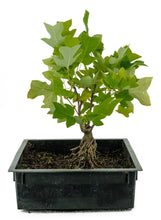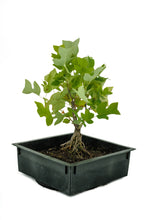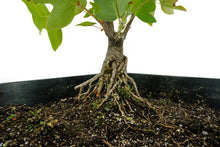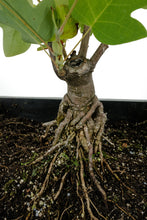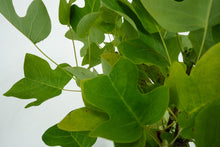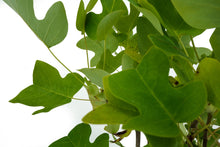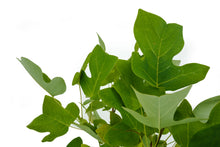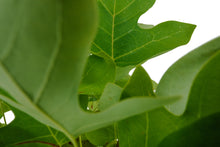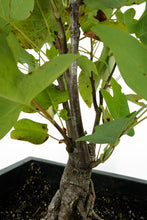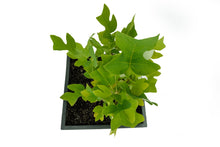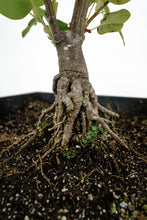
Liriodendron tulipifera
- A one-of-a-kind bonsai tree from the nursery — the tree pictured here is the tree you'll get!
- Seed-grown on California's Redwood Coast
- Transplanting and care instructions included
|
Age 16 years |
|
Foliar Height 22" |
|
Trunk Diameter 1.5" |
|
Container Size 14" x 14" x 5" |
|
Root-Pruned Yes |
|
Wired Yes |
|
Notes |
 |
Moisture Medium |
 |
Cold Hardiness -10°F |
 |
Light Full Sun / Partial Shade |
 |
Size 60 – 100' tall / 30 – 50' spread |
 |
Lifespan 200 yrs |
 |
Growth Rate Fast Growing |
 |
Drought Tolerance Medium |
 |
Wind Resistance Medium |
About Jonsteen's Bonsai Specials
Throughout the year, we set aside especially interesting seedlings from the nursery for transplanting and light shaping in the bonsai style. These are one-of-a-kind specimens — what you see pictured here is exactly what you will receive!
About Tulip Poplar
One of the finest and largest of the eastern American hardwoods, the Tulip Poplar (Liriodendron tulipifera) graces yards and gardens from coast to coast in the United States, also ranging up into Canada and down into Mexico. The Tulip Poplar commonly attains heights of 80 to 100 feet and trunk diameters of 2 to 5 feet, but can grow much larger and much taller — in fact, it is the tallest native deciduous tree in America.
This impressive tree features an unmistakably unique leaf shape, wonderful, bright yellow fall colors, and showy and fragrant tulip-shaped summer flowers, from which the tree takes its name. While the Tulip Poplar is valued as a street, shade, and ornamental tree, it is also an important timber tree, whose wood is used for boat-building, furniture, and other purposes. It is also important to wildlife, attracting honeybees, butterflies, birds, and other wildlife with its spicy, aromatic fragrance. A member of the Magnolia family, the Tulip Poplar is the State Tree of Indiana, Kentucky, and Tennessee.
About Jonsteen's Seedlings
All of our trees are seed-grown at our nursery on California's Redwood Coast, which is inspected monthly and licensed by the California Department of Agriculture. Trees can provide a natural barrier against high winds, temperatures, noise pollution and soil erosion, all while benefiting local air quality, wildlife and property values — a Jonsteen seedling will only grow in value and beauty!











